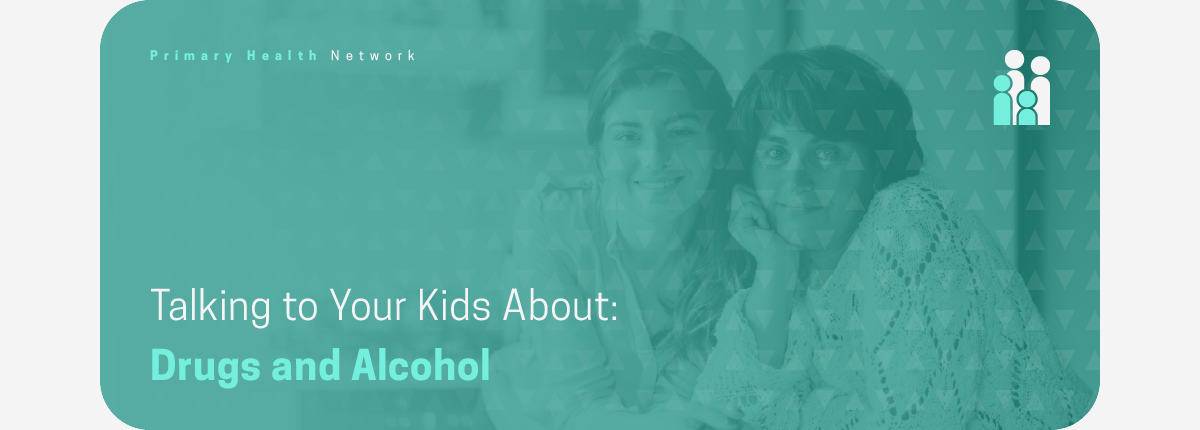
When it comes to having to talk to our adolescents about alcohol and other drugs, most parents are hesitant because of the typical thinking that if we talk about it, they are more likely to use it. Statistically, if you’re having open and honest conversations with your child, the likelihood of them using substances goes down. When talking to your adolescents about alcohol and other drugs, it is important to express your disapproval of underage drinking and drug misuse; 80% of young people, those aged 10 to 18, state that their parents are the leading influence on their decision on whether to use drugs or alcohol.
Adolescents are most likely to listen when they know that you are on their side and want what is best for them, their health, and overall wellness. Let them know that you want them to be happy, safe, and healthy. They will feel a lot better about the conversation when they know you’re being open and honest and showing genuine concern for their well-being. Let yourself be a great source of information about alcohol and other drugs for them. With social media and everything at their fingertips, a lot of adolescents may get some misinformation or hear about alcohol and other drugs from an unreliable source.
It is always important to be aware of what your adolescent is doing. Young people are more likely to drink or use other drugs if they think that no one is paying any attention. Be mindful and let them know you’re paying attention in the most indirect way without being intrusive. The most important piece of this conversation is to make sure your adolescent has the skills and strategies to avoid underage drinking and drug use. Peer pressure is the worst culprit when it comes to alcohol and other drugs. Having a plan with your child to avoid the use of underage drinking and other drugs will help them be able to make better choices. Talk to them about scenarios in which they are faced with a decision where alcohol and other drugs are involved. What would the plan look like for them? How would they say no? Having a secret code with them is a great way to get out of a certain situation. If they text you and say “no thanks” or a certain emoji, that could be their out, alerting you to call them and say it is time to come home.
Overall, if you continue to be a positive role model for your children, be mindful of their actions, and continue to support them, having discussions around drugs and alcohol becomes easier. Being a parent or guardian is not an easy job, but if some of these tips can assist in starting the conversation, then you’re headed down the right path. Please check out the SAMSHA website for more information on having a discussion about drugs and alcohol with your child.
If you feel that your adolescent is struggling with their mental health or drug and alcohol use, please head to the Primary Health Network website, https://primary-health.net/ServiceDetail.aspx?id=20 to look at our list of behavioral health providers near you.
